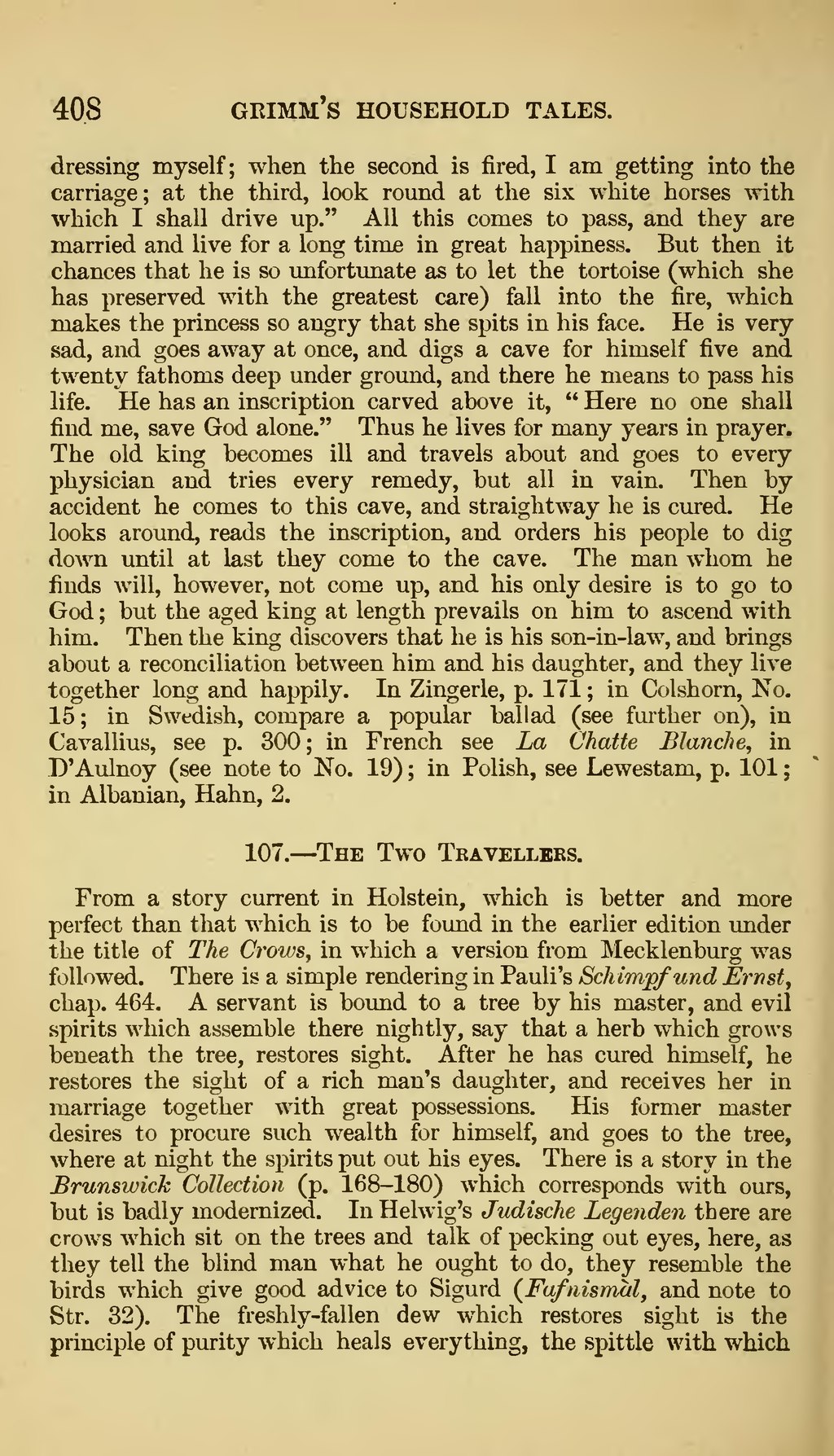dressing myself; when the second is fired, I am getting into the carriage; at the third, look round at the six white horses with which I shall drive up." All this comes to pass, and they are married and live for a long time in great happiness. But then it chances that he is so unfortunate as to let the tortoise (which she has preserved with the greatest care) fall into the fire, which makes the princess so angry that she spits in his face. He is very sad, and goes away at once, and digs a cave for himself five and twenty fathoms deep under ground, and there he means to pass his life. He has an inscription carved above it, "Here no one shall find me, save God alone." Thus he lives for many years in prayer. The old king becomes ill and travels about and goes to every physician and tries every remedy, but all in vain. Then by accident he comes to this cave, and straightway he is cured. He looks around, reads the inscription, and orders his people to dig down until at last they come to the cave. The man whom he finds will, however, not come up, and his only desire is to go to God; but the aged king at length prevails on him to ascend with him. Then the king discovers that he is his son-in-law, and brings about a reconciliation between him and his daughter, and they live together long and happily. In Zingerle, p. 171; in Colshorn, No. 15; in Swedish, compare a popular ballad (see further on), in Cavallius, see p. 300; in French see La Chatte Blanche, in D'Aulnoy (see note to No. 19); in Polish, see Lewestam, p. 101; in Albanian, Hahn, 2.
107.—The Two Travellers.
From a story current in Holstein, which is better and more perfect than that which is to be found in the earlier edition under the title of The Crows, in which a version from Mecklenburg was followed. There is a simple rendering in Pauli's Schimpf und Ernst, chap. 464. A servant is bound to a tree by his master, and evil spirits which assemble there nightly, say that a herb which grows beneath the tree, restores sight. After he has cured himself, he restores the sight of a rich man's daughter, and receives her in marriage together with great possessions. His former master desires to procure such wealth for himself, and goes to the tree, where at night the spirits put out his eyes. There is a story in the Brunswick Collection (p. 168-180) which corresponds with ours, but is badly modernized. In Helwig's Judische Legenden there are crows which sit on the trees and talk of pecking out eyes, here, as they tell the blind man what he ought to do, they resemble the birds which give good advice to Sigurd (Fafnismàl, and note to Str. 32). The freshly-fallen dew which restores sight is the principle of purity which heals everything, the spittle with which
